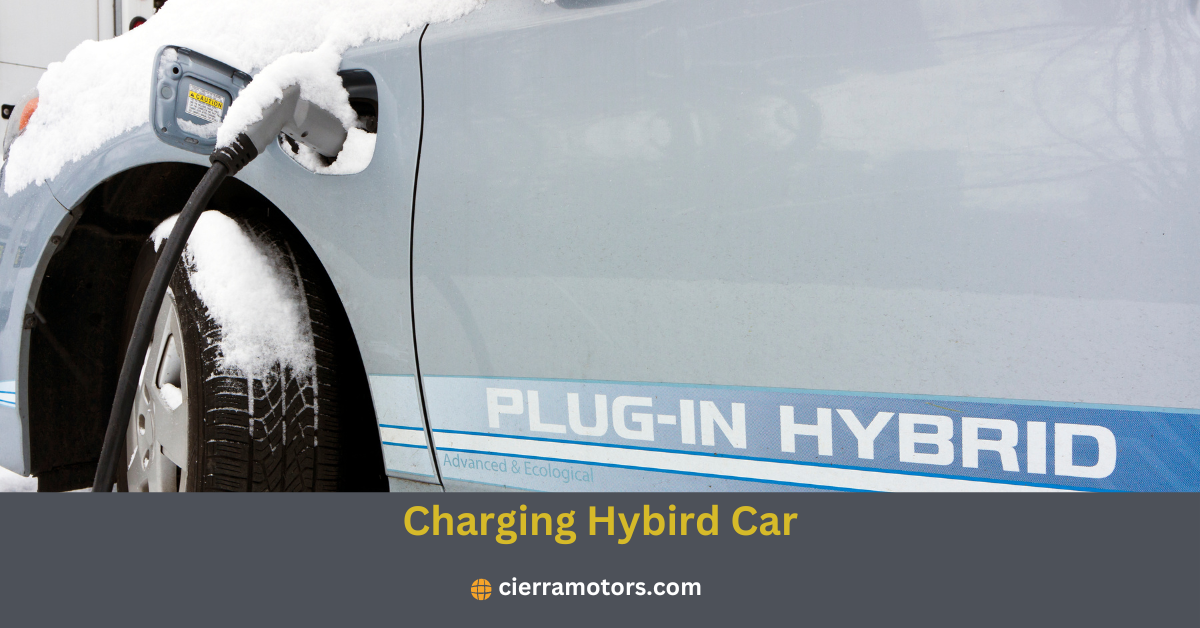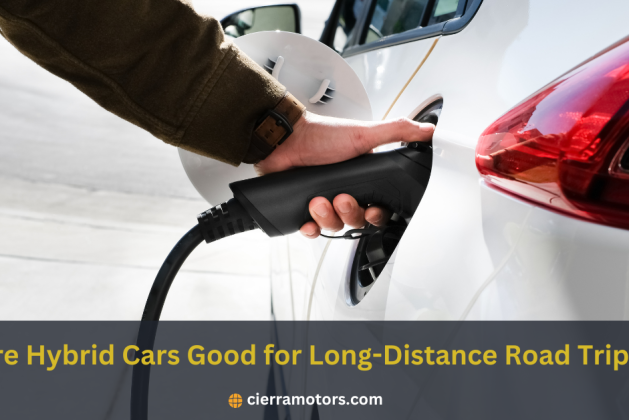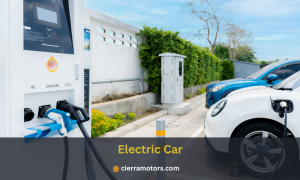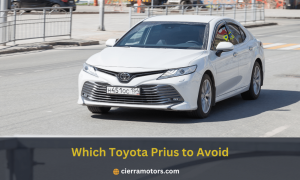Hybrid cars have swiftly become the vanguards of sustainable travel, lauded for their eco-friendliness and fuel economy. But do hybrid cars stand up to the challenge when it comes to something as quintessentially American as the excellent road trip? In this comprehensive exploration, we’ll dissect the topic to definitively answer every eco-conscious traveler’s question: Are hybrid cars good for long-distance road trips?
The Journey Begins – A Look at Hybrid Cars on the Road
The urge to explore the open road, once an icon of freedom, now merges with rising environmental consciousness. Today, the question is about where we can go and how we can get there sustainably. Hybrid cars have emerged as a promising solution, seen increasingly on highways as symbols of responsible travel. But until now, their reputation largely precedes them only in urban environments, where stop-and-go traffic plays to their strengths.
Road trips, however, conjure images of vast, uninterrupted stretches of highway, which brings us to the question: Are hybrid cars truly equipped for long distances?
Are Hybrid Cars Good For Long-Distance Road Trips?

Charging the hybrid car
Yes, they are! With a few conditions, that is. Hybrid cars are designed to achieve higher fuel efficiency by combining an internal combustion engine with one or more electric motors. This allows them to switch between gas and electric power, making them perfect for stop-and-go city driving.
Consider the Toyota Prius, one of the most popular hybrid models on the market. This vehicle showcases how hybrids can excel in long-distance driving scenarios. With its impressive EPA-estimated mileage of up to 57 miles per gallon in the city and 56 on the highway, the Prius can cover significant distances on a single gas tank. This efficiency reduces the number of stops needed for refueling. It minimizes the overall fuel costs and carbon footprint of your road trip, making it an exemplary case of a hybrid vehicle capability on long journeys.
The Carpool to Efficiency – Benefits of Hybrid Cars on Long Journeys
Fuel Efficiency – The Core Advantage
With their dual power sources, hybrid cars excel in fuel frugality, a characteristic especially appreciated on long stretches of the highway. The transition between electric power and the combustion engine, coupled with regenerative braking, ensures every drop of fuel goes further.
In detail, regular cars consume fuel even when idling, while hybrids use battery power to stand still. This feature makes them more efficient for long journeys with constant stops and starts. Moreover, hybrid cars also utilize regenerative braking, which captures energy usually wasted during braking and stores it in the battery for later use. This feature becomes particularly beneficial when on a road trip, where braking becomes more frequent due to traffic and changing speed limits.
The Environmental Edge – Greenhouse Gas Emissions
A silent but crucial victory for hybrids is their substantial reduction in greenhouse gas emissions. With a careful blend of electric and gasoline power, these cars tread lightly on the environment, a virtue magnified when covering sizable distances.
According to the Environmental Protection Agency, hybrid cars emit 25% less greenhouse gases than their traditional counterparts. So you can save on gas costs during your road trip, reduce your carbon footprint, and contribute to a healthier planet.
Power Play on the Pavement – Hybrid Performance
Fun and fuel efficiency coalesce in the performance section, where hybrid cars often exceed expectations. Acceleration and handling statistics reveal the underlying design philosophy of hybrids – to deliver smooth and reliable driving experiences. This translates to a road trip that isn’t just eco-friendly, comfy, and fun.
The hybrid car can increase its speed from 0 to 60 miles per hour in less than seven seconds, an impressive feat for a vehicle that prioritizes fuel economy. This speed range is enough for highway driving and overtaking slower vehicles on long journeys.
Pit Stops and Perspectives – Considerations for Hybrid Car Road Trips
Charging Infrastructure – The Road Ahead
Hybrids may be partially electric, but the growing network of public charging stations ensures a hitherto unparalleled convenience for long trips. These charging stations and the impressive range of hybrid cars have significantly reduced “range anxiety,” making long-distance travel more feasible for hybrid owners.
However, it’s worth considering that not all hybrids come with a plug-in option. So, if you’re planning to take a lengthy road trip in your hybrid car, research and plan your route accordingly to ensure the availability of charging stations along the way.
Range Anxiety – An Obsolete Obstacle
The term “range anxiety” was once coined to describe the fear of running out of battery power while driving an electric vehicle. However, with hybrid cars boasting impressive ranges between fuel stops and charging stations becoming more common, this issue is gradually becoming a thing of the past for eco-conscious road trippers.
The Maintenance Myth – Defusing Cost Concerns
One common misconception is that hybrid cars are costlier to maintain. However, with advancements in technology, this myth is no longer valid. In fact, due to their reliance on electronic components, hybrids often require less maintenance and have fewer parts that need regular replacement compared to traditional cars.
You only need to change the oil every 5,000-10,000 miles (compared to the standard 3,000 miles for traditional cars), and brake pads last up to twice as long due to regenerative braking. So not only will your hybrid vehicle save you money on fuel costs during your road trip, but it may also require less maintenance in the long run.
Navigating the Hybrid Highway – Tips for Planning Your Trip
Route Planning for the Electric Era
Intelligent route optimization is critical to maximizing your hybrid’s dual capabilities. You are integrated with GPS technology, and planning tools now factor in the location of charge stations, ensuring minimal deviation from your intended path.
Stations and Strategies – Preparing for Power
Knowing your charging stations is as important as knowing your rest areas. With apps and online resources dedicated to listing such stops, a well-prepared road tripper ensures that every plug-in point is a known destination, not a hopeful prospect.
Emergency Kits and Essential Gear – Packing for Peace of Mind
Regardless of their car’s propulsion system, every traveler should be prepared for unforeseen circumstances. An emergency kit tailored to your hybrid’s needs, including fluids and preventive tools, significantly reduces the stress of ‘what if.’
A Destination Wrapped in Capable Efficiency – Concluding Thoughts
Hybrid cars prove their sustainability on highways, clocking miles without sacrifice. Strategic planning boosts their performance, transforming road trips from emissions tales to efficient wonders. Engines and the environment can coexist; hybrid road trips show this. It’s a narrative of pragmatism and passion as the world moves greener. The collective hum of hybrid engines signals transformation on roads. Hybrid cars offer epic, sustainable journeys for those balancing wanderlust and responsibility. The great American road trip endures, now with a greener philosophy celebrating both miles and mission.
FAQs
Q. Can hybrid cars only be driven in electric mode for short distances?
A. No, most hybrid cars range up to 30 miles on electric power alone, allowing for longer trips without gasoline.
Q.Do I need to install a charging station at home if I own a hybrid car?
A. No, hybrid cars can still be charged through a standard wall outlet, but investing in a home charging station can significantly decrease charging time.
Q.Are there any incentives for purchasing a hybrid car?
A. Some states offer tax incentives and rebates for buying environmentally friendly vehicles. Additionally, some insurance companies may offer discounts for owning a hybrid car. So, you save on gas costs during your road trip and may receive additional cost savings in the long run.
Q. How far can you drive in a hybrid car?
A. Range varies depending on the hybrid model and driving conditions, but most hybrids can travel up to 600 miles on a single gas tank, making them reliable options for road trips. Additionally, the range should be fine for hybrid owners with the growing charging station network.
Q. Is hybrid or electric better for long distances?
A. Both hybrid and electric cars can be great long-distance travel options. Hybrid cars offer the convenience of switching between gasoline and electric power, while electric cars may require more planning for charging stops. Ultimately, the best option will depend on your personal preferences and needs.
Q. At what speed does a hybrid switch to gas?
A. The speed at which a hybrid switches to gas can vary depending on the model and driving conditions. However, most hybrids will gradually switch to gasoline once they reach speeds above 40-50 miles per hour. This allows for optimal fuel efficiency during city driving while providing power for longer-distance travel when needed.



Leave a comment